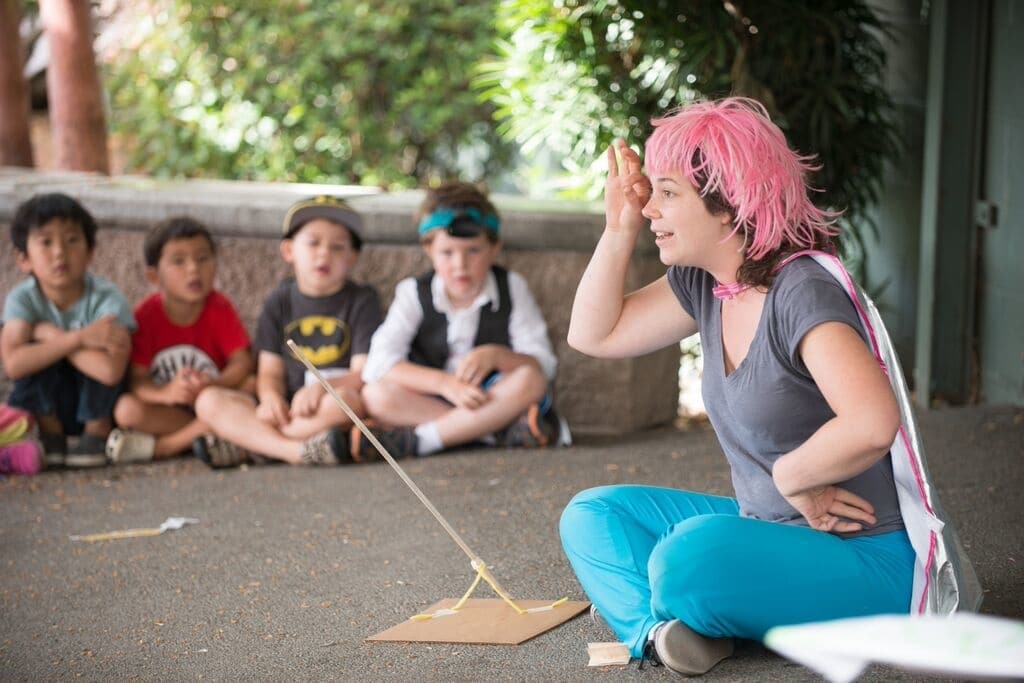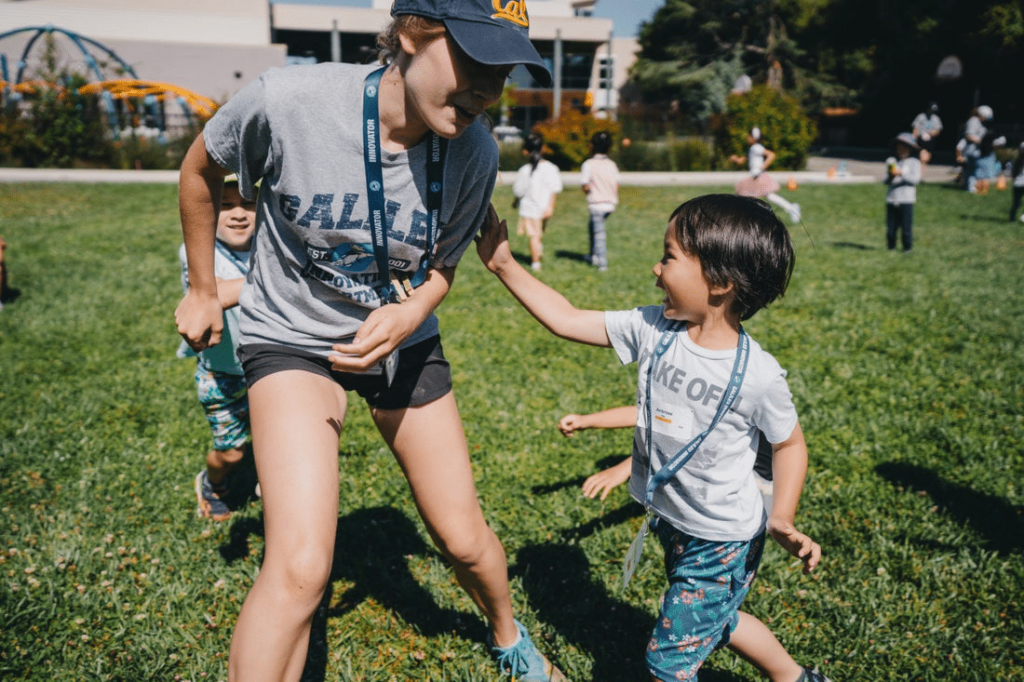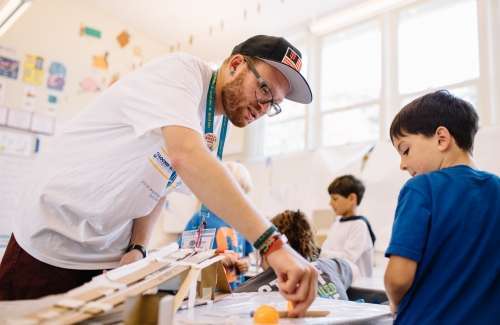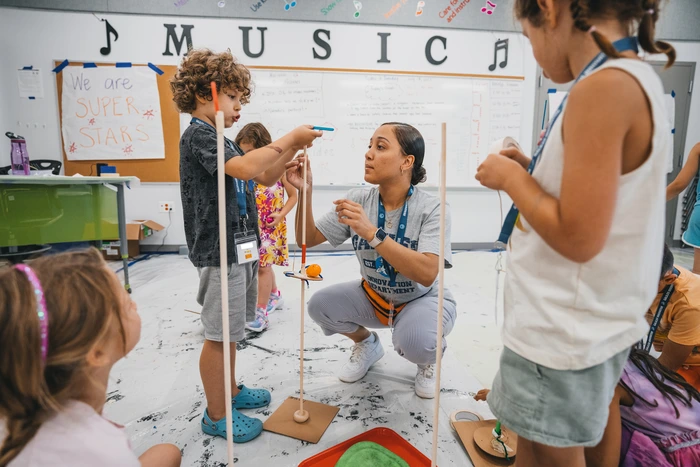There’s a lot that goes on during the camp day, and coaxing the details out of your camper isn’t always easy. Between digging into projects and piecing together the names of staffers, words like “Chickenopoly” and “Red Supergiant” can seem like total question marks. That’s why we compiled this handy list of often-used phrases and unique-to-Galileo acronyms.
TRADITIONS
Marvelous Mistake
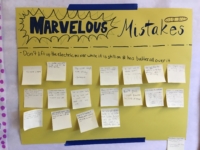
At camp, we celebrate mistakes as proof that campers are embracing new challenges. Campers are encouraged to try new things, fail often, and reflect upon those missteps to make their next round even better. Classrooms have marvelous mistake walls where campers can celebrate and share their epic fails (and even more epic learnings).
Rubber Chicken
Camp mascot and trusty sidekick to your camp director. Each camp has its own rubber chicken, and each rubber chicken has its own name and personality. However, rubber chickens share a set of superpowers. Ask your camper what their rubber chicken’s name is and what superpowers the rubber chicken has!
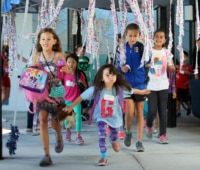 Fun Machine
Fun Machine
The way each camp day starts. After campers check in for the day and grab their name tags, they enter camp through a musical, magical, camp-spirit-filled portal. This sets the stage for a fun-filled day and reminds campers that they can be whoever they want to be at camp.
Opening Ceremony
Before going to their first rotation, campers gather together to kick off the camp day with songs, skits, and cheers.
Show Me How You Get Down
A camp favorite better shown than told. Check it out below, then ask your camper to show you how they get down.
Chickenopoly
An all-camp game in which teams of campers work together to accomplish a set of tasks. For example, the staffer leading the game might ask to see an all-team conga line, hear a verse of a camp song, or marvel at a team cheer.
Wheel of Misfortune
Throughout the week, staffers draw camper names at random. The chosen camper spins a wheel and chooses a staffer to receive the consequence on the wheel. Those lucky staffers might win a pie to the face, a water balloon over the head, or any number of other wheel-determined prizes.
CAMPER AGE GROUPS
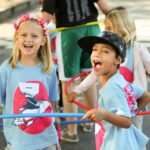 Nebula
Nebula
Our youngest campers, Nebulas are entering kindergarten in the fall. They spend the day in NebbieLand—a special zone reserved just for our youngest innovators in training—participating in enticing projects and activities specifically designed to inspire and encourage them.
Star
Stars are campers who are entering first or second grade in the fall. These campers are beginning to think and act more independently and are likely to dive headfirst into the magic and silliness of camp. Stars tackle a range of projects, sometimes developing a single idea over several days.
Supernova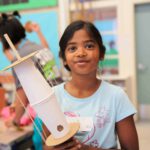
Leaders at Camp Galileo, Supernovas are campers entering third, fourth, or fifth grade in the fall. These campers model what it means to be determined, collaborative, and reflective for younger campers. In the classroom, Supernovas stretch their creativity as they are immersed in complex multi-day projects.
Red Supergiant
This is an honorary title and special distinction given to Supernovas who are entering fifth grade in the fall. The oldest campers at Camp Galileo, Red Supergiants practice their leadership skills by mentoring younger campers.
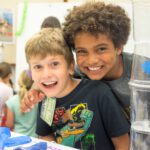
GSQ
Campers at Galileo Summer Quest, or GSQ, are entering 5th – 8th grade in the fall. GSQ campers pick a major they love or are excited to explore—like Chefology, Go-Kart Builders, YouTube Producers or Robot Pet—and work with like-minded campers and professional equipment to become an expert in their chosen craft. They spend an entire week transforming visionary ideas into an awesome, one-of-a-kind reality.
STAFF
Camp Director
Your camp’s fearless leader. These folks are serious professionals with tons of experience working with kids and leading teams. They’re also seriously silly, willing to don a wild costume or take a pie to the face to make your camper smile. During the non-summer months, many Galileo Camp Directors are professional educators.
Lead Instructor
Passionate educators and subject matter experts, these staffers bring Galileo innovation to life at camp. Lead Instructors expertly deliver our unique curriculum and guide campers through engaging projects as they build their innovation skills and knowledge.
Team Leader/Assistant Instructor
These staffers spend the bulk of the day with your camper, building team spirit and individual camper relationships. At Camp Galileo, Team Leaders guide a single team of campers through an entire day of art, science, and outdoor rotations. At Galileo Summer Quest, Assistant Instructors support campers in a single major like Go-Kart Builders or YouTube Producers. Typically college students and graduates, Team Leaders and Assistant Instructors love kids, and many are pursuing careers in education.
THE GIA
Innovator’s Mindset
Innovation starts with the way you think of yourself and the attitude with which you approach projects. The Galileo Innovator’s Mindset identifies five key characteristics required for innovation:
- Visionary: I envision a better world. I imagine things that don’t exist yet. I believe it’s my place to turn ideas into reality.
- Courageous: I freely share my creative thoughts. I stretch myself to try new things. I embrace challenges.
- Collaborative: I value the unique perspectives of others. I build on the ideas of others. I use my strengths to support the work of others.
- Determined: I persevere until I achieve my goal. I recognize setbacks as opportunities to learn. I know that innovation and mastery require effort.
- Reflective: I take time to think about what is and isn’t working in my design. I think about how my work impacts other people and the world. I seek feedback to improve myself and my work.

Innovator’s Process
How innovators innovate. Campers practice each step of this process, moving forwards and backwards through steps as necessary, as they realize their visions and turn ideas into realities.
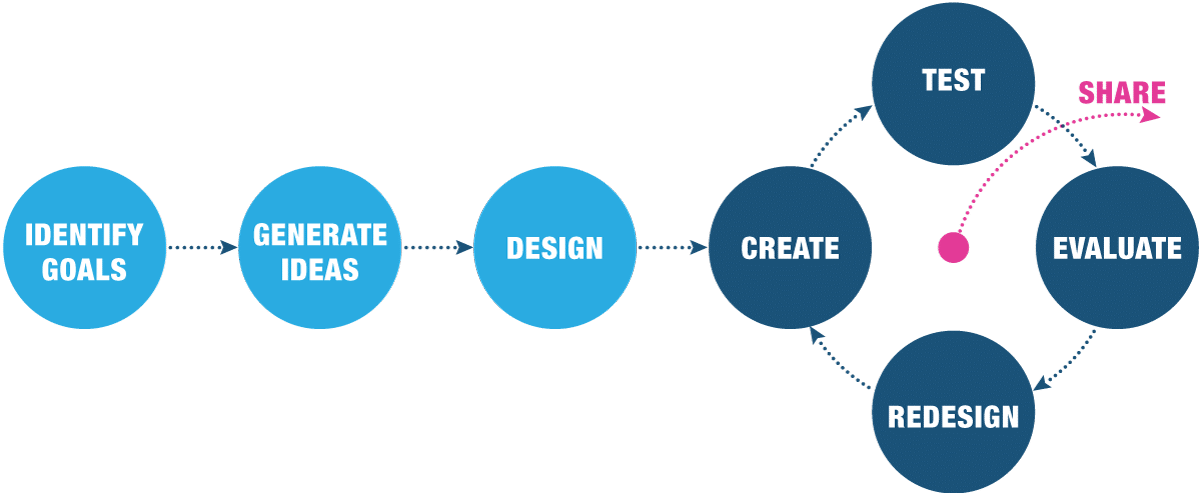
Innovator’s Knowledge
What innovators need to understand. We’ve identified four knowledge components, and campers work towards building their understanding of each over the course of the camp week.
- Concepts and Facts: The big ideas, principles and facts relevant to their work
- Historical Context: The contributions of relevant movements, artists, scientists, designers and other experts who came before them
- Skills and Techniques: How to use materials, tools and technology that allow them to effectively create, test and share their ideas
- Audience and Environment: The needs and circumstances of their users and the physical context in which their work will be received
Still have questions about an unfamiliar term? We’d love to help shed some light. Feel free to ask a staff member at your camp location, or drop us a line.
